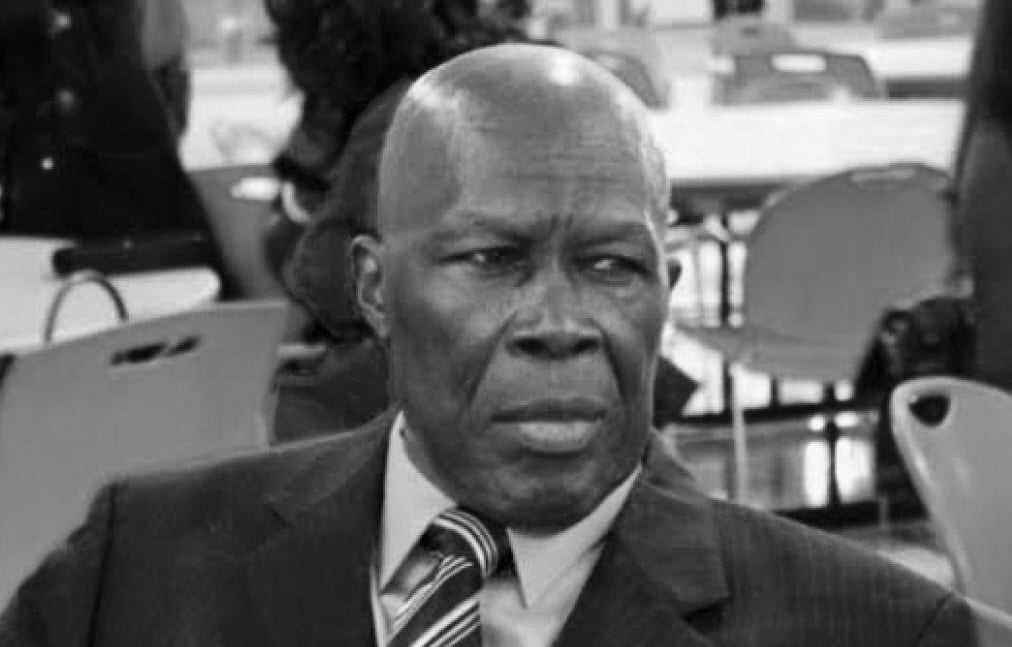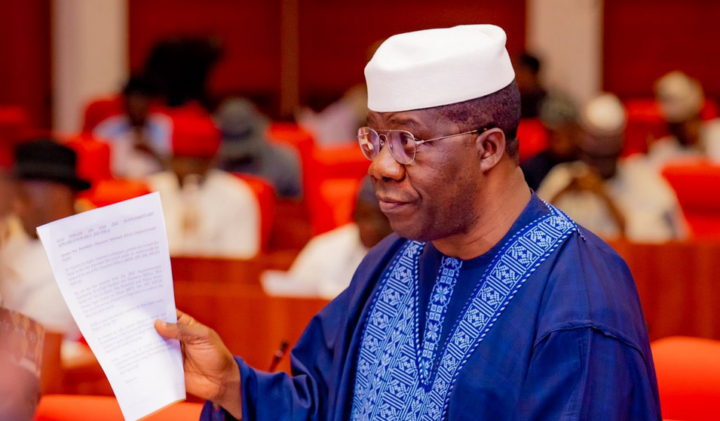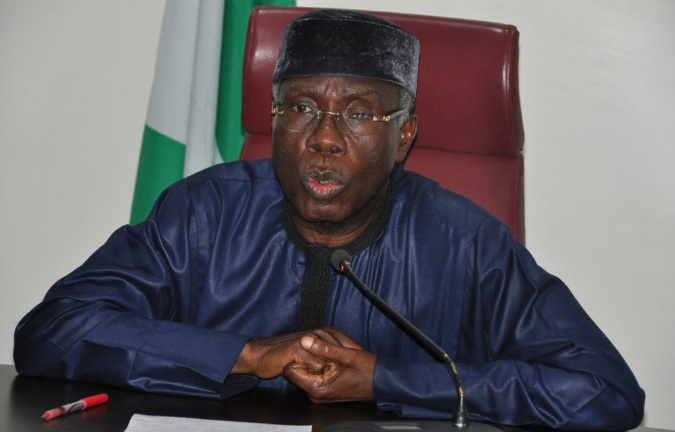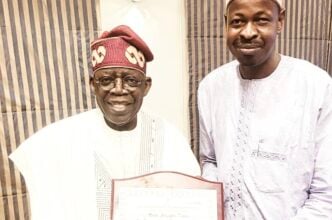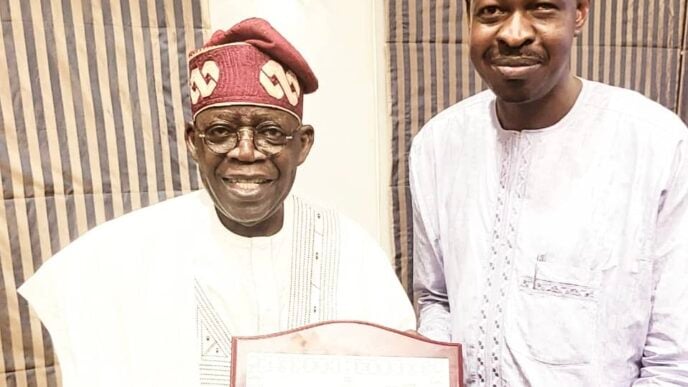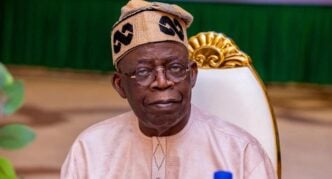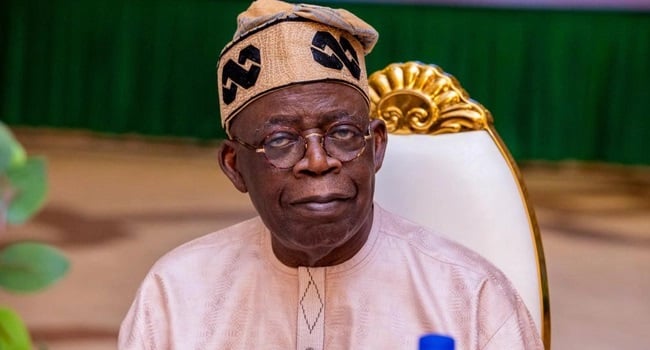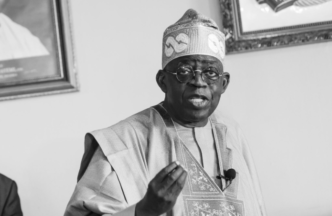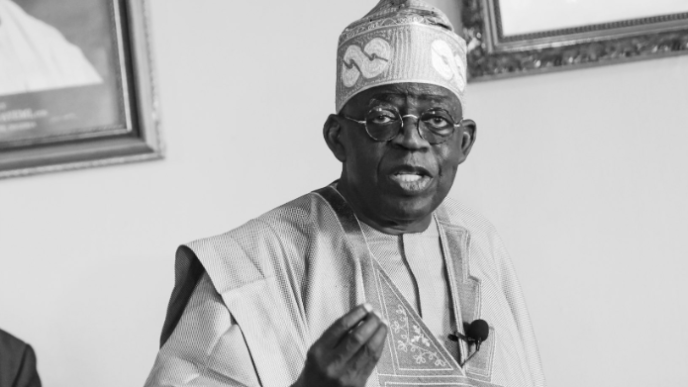Dead or alive, Professor Humphrey Nwosu always evoked extreme emotions. I am not by any chance surprised by the outbreak of controversy over whether or not to immortalise him. The former chairman of the National Election Commission (NEC, now INEC), who died at 83 and was buried on Friday, is best known for conducting the June 12, 1993 presidential election. The watershed election was annulled by Gen Sani Abacha, the minister of defence, while Gen Ibrahim Babangida, the president and commander-in-chief of the armed forces, watched helplessly and innocently from his balcony. (If you believe that fantastic story, you can as well believe I am the Queen of Yugoslavia.)
I recall that on Monday, June 14, Nwosu announced results from 15 states, 11 of which were won by Bashorun MKO Abiola, candidate of the Social Democratic Party (SDP). The highlight was Abiola’s victory over Alhaji Bashir Tofa, candidate of the National Republican Convention (NRC), in his own backyard. Abiola did not only win Tofa’s ward, but he also won Kano state. It was total humiliation for Tofa and sweet victory for Abiola, whose backbone in Kano was Alhaji Abubakar Rimi, the former governor. On June 16, NEC suspended announcement of results citing a court injunction, although the electoral laws ousted the jurisdiction of the courts in the conduct of the transition elections.
On Wednesday June 24, Babangida told the nation he had annulled the election, based partly on the need to “protect the judiciary” (don’t laugh). By the way, fake news did not start in the age of social media. The best sites for fake news in those days were newsstands where, depending on the algorithm, you could be served the best rumours and conjectures tailored to your taste. We were told then that as Nwosu insisted on announcing the remaining results, he was arrested by soldiers and given the beating of his life. As a result of the torture, the “bloggers” at the newsstands explained, Nwosu was taken ill and could not continue with the announcement. We believed it.
I pitied Nwosu, whom I saw as the last man standing in a dishonourable and duplicitous military government bent on truncating democracy and holding on to power. He thereafter disappeared from the public eye, perhaps out of trauma, perhaps out of remorse. He refused to grant any media interview. In 2001, when I was editor of TheWeek magazine (a weekly publication founded by Alhaji Atiku Abubakar), I thought Nigerians should hear from Nwosu. A story is best enjoyed from the horse’s mouth. I sent the political editor, Raphael Duru, to Nwosu’s village in Anambra state to search him out. The professor of political science chased him away, shouting: “Leave me alone!”
Advertisement
For long, there was some frustration about Nwosu. Nigerians had many questions lined up that only he could answer, but he refused to come out. Who was really behind the annulment? What role did Babangida, in particular, play? What were the roles of Abacha and other top military officers? Why did Nwosu suddenly stop announcing the results? Why did he not go ahead to announce Abiola as the winner in spite of the court injunctions since the electoral laws expressly ousted judicial jurisdiction? Was it true that he was arrested and manhandled by Brigadier Halilu Akilu, the director of the dreaded Directorate of Military Intelligence (DMI), for insisting on announcing the results?
In 2008, he announced that he had written a book on the election. He picked an interesting date for the presentation: June 12 — exactly on the 15th anniversary of the election. The book, titled ‘Laying the Foundation for Nigeria’s Democracy: My Account of June 12, 1993 Presidential Election and its Annulment’, was published by Macmillan Nigeria. It was presented at the Abuja Sheraton Hotel and had in attendance Akilu, the man reputed to have arrested and slapped him. I looked forward to devouring it, although I felt he was telling the story too late. By the way, both Akilu and Nwosu used the occasion to deny that the professor of political science was arrested and manhandled in 1993.
But I was generally disappointed with the book. We did not wait for 15 years for Nwosu to come and tell us that the president and commander-in-chief of the armed forces was not to blame for the annulment. Babangida himself had taken responsibility in interviews. More so, he stepped aside in August 1993 and conveniently left Abacha behind as minister of defence and, technically, commander-in-chief. This allowed the Goggled One to sweep away the interim national government, led by Chief Ernest Shonekan, in a matter of 83 days. Abacha had saved Babangida by foiling the Orkar Coup in 1990. This 1993 arrangement looked like a case of one good turn deserving another.
Advertisement
My conclusion after leafing through Nwosu’s book was that Babangida had his nudes, so he felt obliged to defend the former president till his dying days. I also believed Babangida was preparing to launch a comeback into politics and had sent Nwosu ahead to help in rehabilitating him in the minds of Nigerians. In one word, I wished Nwosu had not written that book at all. Silence is golden. I began to view him differently and the respect I had stored up for him in 15 years started evaporating. But years down the line when I watched his interview with Sahara TV, my hard line on him began to dissolve. I could see that he put in a decent shift under the difficult circumstances he found himself.
The irony of it all is that it was Babangida’s memoir, ‘A Journey in Service’, published last month, that finally made me cut Nwosu some slack. To me, Nwosu appeared to have been quite brave in going ahead to conduct the June 12 election despite the body language of the powers that be following the late-night injunction issued by Justice Bassey Ikpeme. From similar narrations by both Babangida and Nwosu, it was clear that senior members of the National Defence and Security Council (NDSC) — the highest ruling body in the country then — did not want the election to go ahead despite the illegality of the injunction stopping the election. The NDSC appeared divided but the consensus was clear.
The easiest thing for Nwosu to do — were he to be, indeed, complicit in the annulment plot — was to put things on hold until the injunction was vacated, even though the electoral laws had clearly stated that no court had the power to entertain matters concerning the conduct of the election. But in the end, was it not court injunctions that were relied upon by Babangida to annul the election? We should resist the temptation to discount the fact that Nwosu insisted on conducting the election despite the implicit and explicit opposition from the military authorities. Nwosu specifically recounted that Babangida told him he was on his own if he went ahead to announce the winner.
Abacha was obviously more straightforward than Babangida in his opposition to Nwosu’s position. At a meeting with the NDSC after declaring the first batch of results, Nwosu recounted: “I told them to allow us to complete the exercise. Abacha screamed at me when he heard this. He told me who do I think I was. He said I was not a member of the national security council and that I went ahead and held an election even after the court had declared it illegal.” This was Abacha’s way of telling Nwosu: Are you a baby? Can’t you read our lips? Do you expect us to talk with the whole of our mouths? Unlike Abacha, Babangida was typically playing the Pontius Pilate and going through the corners.
Advertisement
Perhaps half the story has not been told, but with what is in the public domain, Nwosu did his best to serve Nigeria within the context of a brutal military regime that was notorious for curtailing civil liberty, arresting activists at the slightest provocation, closing down media houses at will, and sacking political appointees without any compunction. It may also be of interest at this stage to point out the fact that the NEC actually filed an appeal in Kaduna on June 20 to quash the various injunctions against the June 12 election and submitted the full results to the court. Guess what happened next? Babangida (or is it Abacha?) dissolved the commission and sacked Nwosu as chairman on June 23.
June 12 election aside, Nwosu did many things. He was a political scientist who performed many experiments to improve the electoral system. He first brought back the open ballot system, mandating voters to queue behind the posters of their candidates and be counted. The idea was to avoid inflation of figures but it ended up killing the secrecy of ballot, eroding the principle of free choice (imagine the possible consequences of husband and wife openly voting for different candidates). He also introduced staggered presidential primaries, by which a party did not have to hold its primary on a single day. It was held in states in different rounds, based on the timetable.
There was serious criticism of the open ballot system as voters complained about intimidation while commentators said it was archaic and regressive. Nwosu tinkered with it and came up with the modified open ballot system (MOBS) which is still in use today. Ballot boxes used to be inside polling booths. This created room for multiple voting and stuffing. With MOBS, voting would be in secret but ballot boxes would be in the open. Everyone could see that no stuffing is taking place. Asked at a press conference why he changed his mind after having defended the open ballot system and declared it as the best, Nwosu replied: “My friend, can’t a good thing give way to a better thing?”
Nwosu also came up with the Option A4 system (which many mistakenly refer to as open ballot till this day). Through Option A4, presidential candidates had to go through four stages before they could pick their party’s tickets. First stage was to contest and win at the ward level, after which they would contest and win at the local government level (stage two) and then proceed to contest and become the state’s flag bearer (stage three). The final (fourth) stage was the national convention, where all the flag bearers from the states would contest for the party’s ticket. No matter the controversies postmarking his life and death, Nwosu was a thinker. He served Nigeria creditably.
Advertisement
AND FOUR OTHER THINGS…
IBAS’ RIVERS
Bob Marley sang it: “Give them an inch they take a yard/Give them a yard they take a mile.” Admiral Ibok-Ete Ibas, the emergency administrator of Rivers, is recreating the state in his own image. Standing on President Tinubu’s mandate, he has sacked all Siminalayi Fubara’s political appointees — as if the governor would not return. He fired the SSG, the chief of Staff, commissioners, board members, special advisers, special assistants and senior special assistants. He appointed a military officer, Commodore Aminu Shehu, as chief of staff, and is now more or less probing the councils. This is somebody that was brought in to stabilise the state. What next? Remove the chief judge? Agenda.
Advertisement
OBI AND OBA
I almost passed out when I watched a video in which Mr Peter Obi was speaking glowingly about how democracy flourished under President Olusegun Obasanjo. And to make matters worse, the audience erupted in applause. Only those who don’t bother to check their facts would take Obi’s eulogy seriously. Where do we even start from? Is it the illegal impeachment of dissenting governors, sometimes by six lawmakers? Is it the abduction of a governor and the withdrawal of his security? Is it the declaration of a meaningless public holiday in April 2007 to stop the Supreme Court from delivering a ruling that was going to favour Alhaji Atiku Abubakar, his estranged deputy? Amnesia.
Advertisement
JUSTICE FOR TEEJAY
Mr Adetunji Opayele aka TeeJay, the 32-year-old co-founder and CTO of Bumpa, was reportedly knocked down on his bike on March 4, 2025 along Ozumba Mbadiwe, Victoria Island, Lagos. There is much to be said about the motorist but a sad part for me is that in the year 2025, there are no functional emergency services in the so-called “Centre of Excellence”. Many motorists refused to help the bleeding and unconscious victim to the hospital, apparently to avoid police trouble. Above all, several hospitals turned him back maybe because of who would pay the bills. He eventually died. What a sad, sad, sad story. When are we going to start valuing human life in this country? Sickening.
Advertisement
NO COMMENT
After using voice vote to determine two-thirds of 360 members in endorsing the state of emergency in Rivers state, the house of reps has been pretty much busy trying to justify the billions of naira we pour into their pockets yearly. On Wednesday, they passed two bills for second reading, a vital legislative stage. One strips the vice-president, governors and deputy governors of immunity. The other bill abolishes the death penalty. If you thought they knew what they were doing, you were giving them too much credit. Less than 24 hours later, our honourable lawmakers gathered again and rescinded the bills. That is the level of diligence that goes into lawmaking in Nigeria. Hahahaha.
Add a comment

